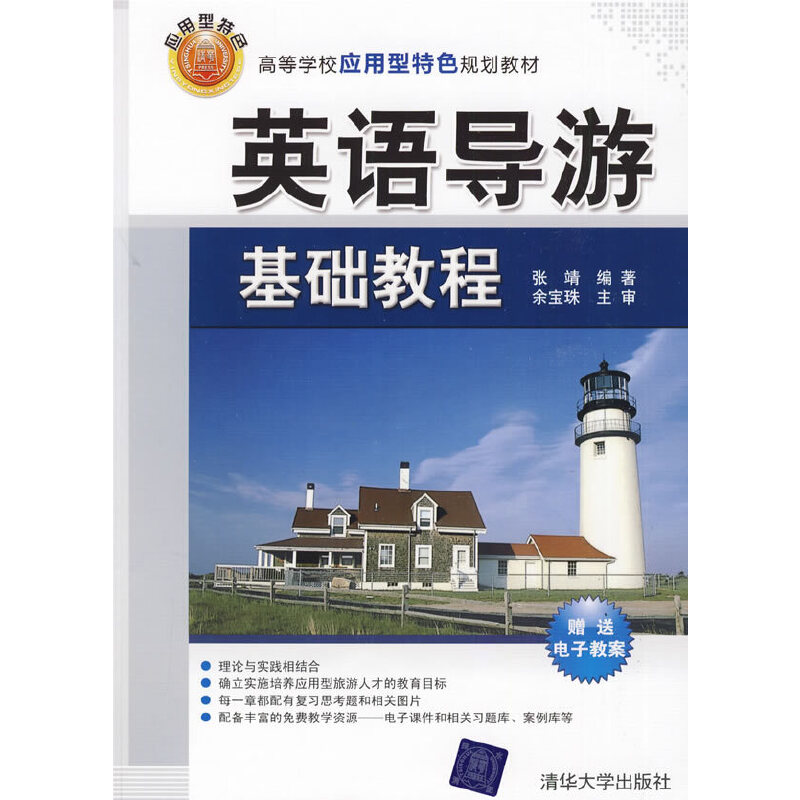英语词汇学教程(第3版)
定价:¥32.00
作者: 张维友
出版时间:2015-06
出版社:华中师范大学出版社
- 华中师范大学出版社
- 9787562270577
- 88248
- 2015-06
- H313
内容简介
《英语词汇学教程(第3版外语语言文学系列教材普通高等教育十一五国家级规划教材)》是笔者张维友,在多年的教学实践基础上整理而成的。《教程》在保留词汇学传统的知识结构基础上,尽可能融进本学科新的研究成果,着力反映词汇的新发展,并首次引进了篇章词汇语义学的内容。本书的着眼点在于实用,因此,理论上阐述深入浅出,删繁就简。同时博采例证,提供丰富的素材。该书配备了相当数量的练习题和思考题,以便巩固学习内容,学以致用。
目录
Chapter 1 Basic Concepts of Words and Vocabulary
1.1 The Definition of a Word
1.2 Vocabulary
1.3 Sound and Meaning
1.4 Sound and Form
1.5 Classification of Words
1.5.1 Basic and Non-basic Vocabulary
1.5.2 Content Words and Functional Words
1.5.3 Native Words and Borrowed Words
Chapter 2 The Development of the English Vocabulary
2.1 The Indo-European Language Family
2.2 Three Phases of the Vocabulary Development
2.2.1 Old English (450-1150)
2.2.2 Middle English (1150-1500)
2.2.3 Modern English (1500 up to the present)
2.3 General Characteristics
2.3.1 Receptivity, Adaptability and Heterogeneity
2.3.2 Simplicity of Inflection ~
2.3.3 Relatively Fixed Word-order
2.4 Foreign Elements in the English Vocabulary
2.4.1 Major Foreign Elements
2.4.2 Minor Foreign Elements
2.5 Growth of Contemporary English Vocabulary
2.6 Modes of Vocabulary Development
2.6.1 Creation
2.6.2 Semantic Change
2.6.3 Borrowing
Chapter 3 Morphological Structure of English Words
3.1 Morphemes
3.2 Morphs and Allomorphs
3.3 Classifying Morphemes
3.3.1 Free and Bound Morphemes
3.3.2 Derivational and Inflectional Morphemes
3.3.3 Content and Grammatical Morphemes
3.4 Identifying Morphemes
3.5 Morphemization and New Morphemes
3.6 Morpheme and Word-formation
3.6.1 Affix
3.6.2 Root, Stem, Base
Chapter 4 Word Formation
4.1 Affixation
4.1.1 Prefixation
4.1.2 Suffixation
4.2 Compounding
4.2.1 Characteristics of Compounds
4.2.2 Formation of Compounds
4.3 Conversion
4.3.1 Conversion to Nouns
4.3.2 Conversion to Verbs
4.3.3 Conversion to Adjectives
4.3.4 Changes Involved in Conversion
4.4 Blending
4.5 Clipping
……
Chapter 5 Word Meaning and Componential Analysis
Chapter 6 Sense Relations
Chapter 7 Changes in Word Meaning
Chapter 8 Meaning and Context
Chapter 9 English Idioms
Chapter 10 English Dictionaries
Chapter 11 Vocabulary Learning
1.1 The Definition of a Word
1.2 Vocabulary
1.3 Sound and Meaning
1.4 Sound and Form
1.5 Classification of Words
1.5.1 Basic and Non-basic Vocabulary
1.5.2 Content Words and Functional Words
1.5.3 Native Words and Borrowed Words
Chapter 2 The Development of the English Vocabulary
2.1 The Indo-European Language Family
2.2 Three Phases of the Vocabulary Development
2.2.1 Old English (450-1150)
2.2.2 Middle English (1150-1500)
2.2.3 Modern English (1500 up to the present)
2.3 General Characteristics
2.3.1 Receptivity, Adaptability and Heterogeneity
2.3.2 Simplicity of Inflection ~
2.3.3 Relatively Fixed Word-order
2.4 Foreign Elements in the English Vocabulary
2.4.1 Major Foreign Elements
2.4.2 Minor Foreign Elements
2.5 Growth of Contemporary English Vocabulary
2.6 Modes of Vocabulary Development
2.6.1 Creation
2.6.2 Semantic Change
2.6.3 Borrowing
Chapter 3 Morphological Structure of English Words
3.1 Morphemes
3.2 Morphs and Allomorphs
3.3 Classifying Morphemes
3.3.1 Free and Bound Morphemes
3.3.2 Derivational and Inflectional Morphemes
3.3.3 Content and Grammatical Morphemes
3.4 Identifying Morphemes
3.5 Morphemization and New Morphemes
3.6 Morpheme and Word-formation
3.6.1 Affix
3.6.2 Root, Stem, Base
Chapter 4 Word Formation
4.1 Affixation
4.1.1 Prefixation
4.1.2 Suffixation
4.2 Compounding
4.2.1 Characteristics of Compounds
4.2.2 Formation of Compounds
4.3 Conversion
4.3.1 Conversion to Nouns
4.3.2 Conversion to Verbs
4.3.3 Conversion to Adjectives
4.3.4 Changes Involved in Conversion
4.4 Blending
4.5 Clipping
……
Chapter 5 Word Meaning and Componential Analysis
Chapter 6 Sense Relations
Chapter 7 Changes in Word Meaning
Chapter 8 Meaning and Context
Chapter 9 English Idioms
Chapter 10 English Dictionaries
Chapter 11 Vocabulary Learning




